New budget brings long-overdue relief to Fijian families - Consumer Council
The Consumer Council of Fiji has welcomed the 2025/2026 National Budget, saying it introduces several measures to ease the cost of living and brings long-overdue relief to Fijian families.
Consumer Council of Fiji CEO Seema Shandil says a key highlight of the budget is the reduction of VAT from 15 to 12.5% — a move expected to ease the burden on consumers, particularly in relation to essential goods and services, which have become increasingly unaffordable in recent years.
She says the Council has long advocated for a more consumer-friendly tax regime, and this policy shift marks a significant step forward, however, she notes that the real work begins now.
Shandil says in the past, when VAT was increased, retailers were quick to pass on the additional costs to consumers but now that taxes have been reduced, the Council wants to ensure those savings are passed on to the public, rather than absorbed as extra profit.
27/06/2025
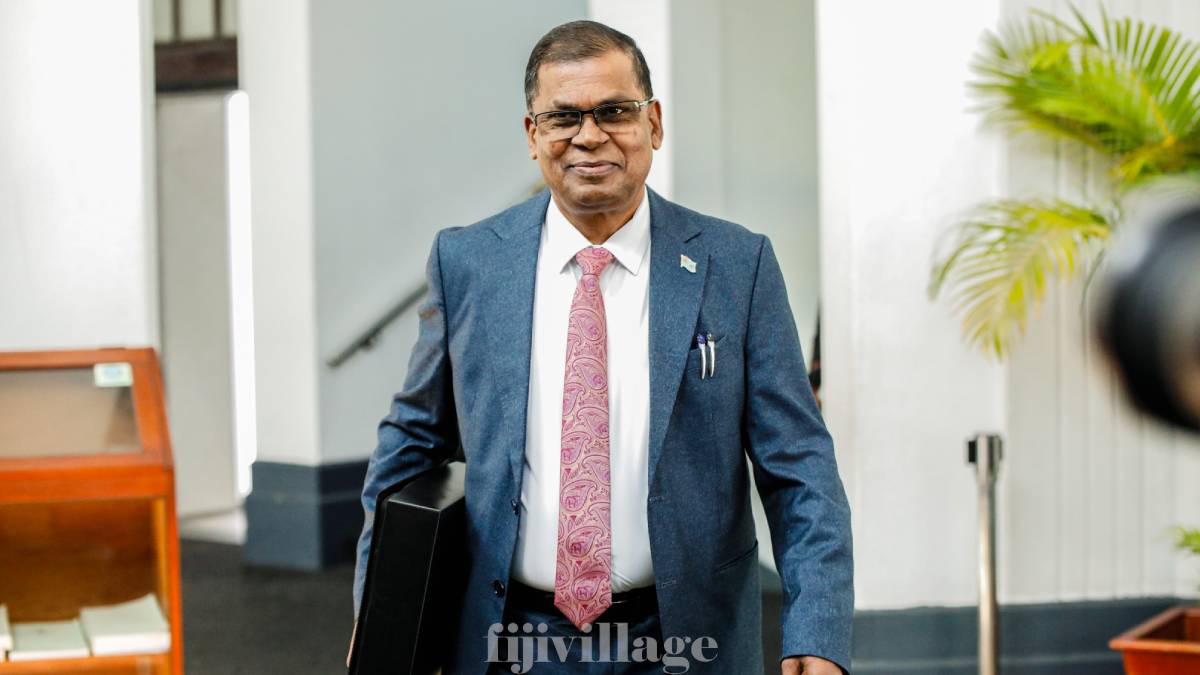
Deputy Prime Minister and Minister for Finance Professor Prasad says to further support affordability, the government has reduced customs duties on several food items, many of which attract low duties of zero to 5 percent.
He says this reduction in indirect taxes must be passed on to the people, and he reiterates that they will be strengthening compliance and enforcement measures to ensure that people benefit directly from these reforms.
Professor Prasad says the classification of personal imports has been amended to clearly distinguish between online purchases and those received as gifts and donations.
He adds under this revised policy, all items received through gifts and donations below $500 will be duty-free and VAT-free.
The Deputy Prime Minister says the government remains firmly committed to tax stability, fiscal responsibility, and putting more money back into the pockets of ordinary Fijians.
He says there are no increases in taxes in this Budget, and they have focused their efforts on targeted relief, incentivising investment, and promoting economic activity in key sectors that support inclusive and sustainable growth.
Professor Prasad says the most significant change in this Budget is the reduction of the VAT rate from 15 percent to 12.5 percent, a bold but deliberate move to ease the cost of living for every Fijian household.
He says this is complemented by the continuation of zero-rated VAT on 22 essential items including medicines, ensuring that low-income families are protected from inflationary pressures.
Professor Prasad says in line with our broader economic transformation agenda, they are also introducing and extending targeted tax incentives to incentivise growth, innovation, and social impact.
He says a 150 percent tax deduction will now apply for donations to Accredited Start-Up Support Programs, fostering entrepreneurship and innovation.
The Minister says under the Employment Taxation Scheme, the 300 percent tax deduction for wages or salaries paid for work placements, apprenticeships, and part-time employment is extended until 31st December, 2026.
He adds the 400 percent tax deduction for hiring persons with disabilities will also be extended until the same period, and these incentives support both workforce participation and social inclusion.
Professor Prasad says for climate transition, they are expanding tax relief for green investments and the income derived from new renewable energy and co-generation projects will now be tax-exempt for 10 years, up from the current 5 years—providing stronger incentives for clean energy adoption.
He adds the Tax-Free Region (TFR) incentive is also being extended to cover the Wainadoi region for waste management, recycling, and renewable energy businesses—sectors that are central to our circular economy strategy.
The Finance Minister says they are also incentivising donations, and a 100 percent tax deduction will now apply to donations made to health centres, nursing stations, aged care homes, orphanages, and drug rehabilitation facilities—supporting vital community institutions that care for our most vulnerable.
Professor Prasad says in the tourism sector, a new 25 percent investment allowance will be introduced for businesses undertaking capital investments in tour and sightseeing operations, with a minimum qualifying threshold of $100,000.
He says this will help diversify tourism offerings and deepen the value chain for our visitor economy.
Professor Prasad says to improve tax administration, they are introducing the VAT Monitoring System (VMS) for all businesses with an annual turnover of $50,000 or more.
He says this will be implemented in phases and will come into effect on 1st January 2026.
Professor Prasad says this system will modernise VAT compliance and improve revenue transparency while reducing tax evasion.
He adds two new VAT refund initiatives will also support our social and environmental objectives.
He says VAT refunds will be available for capital investments in residential solar projects, helping households transition to clean energy.
He further says households that rebuild or repair homes damaged by termites will now be eligible for VAT refunds on construction costs—providing critical relief for affected families.
The Deputy Prime Minister says to support our agriculture sector and improve farming efficiency, mechanical harvester services supplied by registered cooperatives will now be zero-rated for VAT, reducing the cost burden on smallholder farmers and enabling faster land preparation and harvesting.
He adds to support our Fijian diaspora, they will make changes to the Income Tax Act to allow our citizens residing overseas to reorganise and protect their Fiji-based assets through the use of properly structured resident Family Trusts.
He further adds this initiative recognises the deep-rooted connection many diaspora families maintain with Fiji and aims to support intergenerational wealth preservation while ensuring such assets remain invested within our economy.
Professor Prasad says a framework will be developed and rolled out in the coming months to accompany the legislative amendments and support the transparent and responsible use of this concession.
The Minister says they will also reduce the acquisition of Fiji Citizenship and passport fees from the current $3,450 to $1,500 for our diaspora who wish to acquire their Fijian citizenship and return to Fiji to live and invest effective from the 1st of August.
He says this is a pro-people, pro-growth, and pro-investment tax framework, and it rewards innovation, supports job creation, lowers the cost of living, and strengthens the social contract between the state and its citizens.
Govt introduced measures to tackle crime, drugs and HIV
27/06/2025

A series of measures aimed at strengthening policing and law enforcement, curbing drug use, HIV and crime have been announced in the 2025/2026 National Budget as Deputy Prime Minister, Professor Biman Prasad says the Government has agreed to increase the size of the Police Force by an additional 1,000 personnel.
This takes the full strength of the Police Force to more than 6,550 across all ranks.
This is 1 officer to 137 people - meaning 730 officers per 100,000 population. The standard acceptable number is around 300 per 100,000 population.
The Fiji Police Force is provided $240.3 million in this budget, an increase of $13.5 million.
This is a major investment and will be done in two phases at an additional cost of around $40 million.
In the first phase, $19.5 million is provided in the budget to commence the recruitment of 538 additional officers, on top of around 300 vacant positions that will be filled.
This would mean an extra manpower of over 800 officers immediately.
This added strength should now provide a much bigger police visibility, mobility and presence around the country.
The government earlier this month had also approved additional funding of $8.6 million to the Fiji Police Force for their salary progression which will continue.
The new Ministry of Policing is provided a budget of $3.8 million.
The Narcotics Bureau under the Ministry of Policing will lead Fiji’s fight against drug trafficking and substance abuse.
Border protection is being enhanced.
The construction of a new Container Examination Facility is underway and will enhance the ability to detect concealed contraband.
K9 detection capability will be extended to Savusavu under the Duavata Agreement with New Zealand and extending critical assets to our maritime borders.
FRCS has established a dedicated Passenger Information and Intelligence Unit.
This will improve the ability to target high-risk passengers and vessels.
With the drug trade comes dirty money, and the government is strengthening measures to identify and tackle this.
Currently, individuals can open mobile wallet accounts without a Tax Identification Number, and SIM cards can even be purchased with only a photo ID.
These loopholes enable tax evasion, money laundering, and underground economic activity through digital wallets.
To address this, all mobile wallet account holders will be required to register with a TIN and a six-month transition period will be provided to allow for full compliance.
Government will also introduce a mandatory Asset Declaration regime for all registered sole traders in Fiji.
Beginning with the 2025 tax year, all sole traders will be required to submit an annual declaration of their assets and liabilities, alongside their income tax returns.
This will include movable and immovable assets, loans, and sources of income.
This measure will help build a culture of financial transparency, reduce tax evasion, and enhance the integrity of our economy.
Professor Prasad says the HIV epidemic is now a serious growing threat to Fiji.
He says there are now approximately 7,000 HIV cases in the country, and we cannot afford to ignore this rising trend.
Drug use and needle sharing is responsible for 50% of the increase in cases.
This new threat is rising rapidly, induced by sharing of needles and drug related blood transfusion or what is known as blue-toothing.
To fight this, Government is allocating $10 million for a comprehensive approach to testing, prevention, public awareness, and controlling the spread of HIV.
Professor Prasad says these actions represent a clear and coordinated response to crime, drugs, and public health threats.
Teachers’ salaries and scholarship allowance rates increased
27/06/2025

From the 2025/2026 National Budget onwards, the government will make the use of the free education grant fully flexible.
While making the announcement, Deputy Prime Minister, Professor Biman Prasad says this means school managements will now have full autonomy over how the free education grant is spent.
The current rules such as limiting only 20% for building and compound maintenance, 15% for IT equipment, or 30% for administrative and office expenses, will be removed.
Schools may choose to use 90% for school expansion or allocate none for maintenance if there is no immediate need.
School managements will have the full freedom to plan their spending, save funds, or even borrow against the grant for major investments.
$65 million has been allocated for the free education grant for more than 225,000 students.
The current restriction that limits school fundraising to once per year has also been removed.
Fundraising will now be open and flexible, but voluntary.
Professor Prasad says they believe restoring this partnership will promote a deeper sense of ownership and engagement in the education of our children.
The School Management Association will be provided with a first-time funding grant of $500,000.
This will support capacity development and leadership training for school managers.
$300,000 each will be provided to the Principals Association and the Head Teachers Association for the first time.
Teachers’ salaries are increasing further across the civil service by an additional 3% in this budget.
The government plans to recruit 1,125 new teachers.
This includes 962 secondary school teachers, 117 primary school teachers, 41 early childhood education teachers and 5 special education teachers.
They are recognising the critical role of Early Childhood Education by funding ECE teachers on a full-time basis.
The government will now regularise their appointments.
This places them on equal footing with other teaching staff.
$416 million is allocated for teacher salaries in the upcoming financial year.
The school curriculum is under review. Vernacular language study will be made compulsory up to a certain educational level.
Through the Government's transportation assistance scheme, they continue to support students in travelling to and from school, either by bus, rural service operators, or boat transport.
For students with yellow cards (parental income above $16,000), Government will provide a 50% subsidy.
This means that no child or parent will bear any additional cost, even though student fares had doubled.
Top-ups will now be available only to students with active FEMIS IDs.
Once a student leaves school, their subsidy will automatically cease.
Government is allocating $153 million to fund tertiary studies for 24,653 students, which includes 11,593 continuing students and 13,060 new students.
This will be a historically high number of students under full scholarships.
The new increased rates for scholarship allowance are as follows:
For Merit Based High Achievers Local Scholarship, the scholarship allowance will be increased from $6,800 to $7,600 per year.
For other Merit Based Schemes where students are from outside the campus city, the allowance will be increased from $5,000 to $5,600 per year. For other Merit Based Schemes where students have their home in the campus city, the allowance will be increased from $3,000 to $3,200 per year.
For Students with Special Needs Scheme, the allowance rate has been increased from $6,800 per to $8,600 per year.
This is to accommodate travel costs and purchase of special gadgets for study purposes.
The government is also introducing Equity and Inclusion Based Allowance which is to accommodate students from low socio-economic background particularly for students whose both parents are deceased and are either taken care by legal guardian or staying in home care.
These students will receive an additional allowance of $1,000 per year.
This is applicable to students on Home and Away Campus Allowance and students will be required to provide necessary documents.
Government had introduced a minimum cut off mark of 250 out of 400 in year 13 for all degree programmes.
To bring some equity in the scholarship scheme, the cut-off mark for students from rural and maritime zones will be reduced to 240.
The number of TVET scholarships is being increased from 2,780 to 4,500.
TVET scholarships will be extended to students with special needs, similar to the existing provisions for higher education.
Apart from construction, tourism and hospitality and automotive, 5 categories will be added.
These include Traditional Handicraft making with 300 scholarship grants for training on basics of Wood Carving, Tapa or Masi and Weaving.
Performing Arts with 200 scholarship grants for improving Dance and Song for the entertainment industry.
Community Tailoring with 300 scholarship grants for training on Basics of Sewing.
Women Small Business Operations with 100 scholarship grants for training on basics of Bookkeeping and Marketing.
Vocational Literacy and Numeracy with 1000 scholarship grants for 3 months of training for early school leavers intending to pursue vocational certificate III and IV.
For overseas scholarships, apart from degree and post graduate programmes, the government is now expanding it to allow students who wish to undertake TVET qualifications in Australia and New Zealand.
$3,000 per student will be allocated for visa lodgment and processing.
TSLS will engage a licensed agent to get visas processed on time and send students before commencement of classes.
Meal allowance has been increased from $150 per week to $250 per week, commencing from Semester 2 of 2025.
Stipends will be paid directly to students account, and they can decide on renting out or staying in hostel.
A new initiative of Contribution Scheme will be introduced.
Under this new scheme, students will be allowed to apply for partial tuition assistance on a cost sharing basis where TSLS will pay 50% of the tuition fees while students will take care of the remaining 50% of the tuition fees.
This scheme will provide incentivized bond service whereby their bond service will be 1:1, lower than the current 1.5 times for tuition only students and 2 times for students on both tuition and allowances.
$847 million is allocated to the education sector.
The Ministry of Education is allocated $675 million.
This includes $86.5 million for higher education institutions.
$153 million is provided for tertiary scholarships.
Over 84 schools across Fiji have been renovated, repaired, and upgraded.
Many of these schools had suffered damage from past cyclones or had long been in a state of disrepair.
27/06/2025

The government is currently focused on determining the most appropriate location for Fiji’s new national hospital.
While delivering the 2025/2026 National Budget, Deputy Prime Minister, Professor Biman Prasad says they are committed to moving the hospital out of the CBD and to a more accessible location for the people of the greater Suva-Nausori area.
Seven sites are currently under investigation, including Davuilevu, Tamavua, Raiwaqa, Samabula, Valelevu, Nabua and the existing CWM site.
Apart from site selection, they have also been working together with financiers led by the World Bank for a first phase financing package tentatively estimated at around $500 million.
The project and financing package is currently being worked on and an announcement will be made later this year.
He says they will need to increase the bed capacity from the current 453 beds at Fiji’s largest CWM hospital to 703 beds.
Professor Prasad says they need to cater for new services based on our disease profile and projections.
He says we need to make provisions to cater for the needs of the broader Pacific region too as this will also serve as a regional hospital.
The whole project will be costly and very expensive to the tune of almost $2 billion.
Professor Prasad says they are committed to getting this done with the support of our development partners and multilateral financiers like the World Bank and Asian Development Bank.
Detailed engineering assessment of the existing CWM Hospital has been completed, and 27 key priority projects have been identified which will cost around $63 million, with an initial funding support of $15 million from the Government of Australia.
This is in addition to the $8 million government financing component under the Ministry of Health.
The first phase of upgrades is underway, including renovation to the acute patient ward, increased backup water storage, replacement to sewer lines and repairs to roofing.
Additional projects will commence over the remainder of 2025.
They are also advancing the construction of a 100-bed Super Specialty Hospital in Nasinu, supported through a grant by the Government of India.
Land acquisition is now complete, and an Memorandum of Agreement is to be signed soon on the construction, operation and maintenance of the hospital.
The construction of this new hospital is expected to commence soon as design and procurement is finalized.
Professor Prasad says they have been encouraging and providing the necessary support through tax incentives and other support to entice the private sector to invest in hospitals.
The outcome has been positive.
He says we now have a number of private sector players - Pacific Specialist Healthcare, Oceania Hospitals, MIOT Pacific Hospital, Sai Prema Hospital, Heart International and the PPP hospital in Lautoka and Ba managed by Health Care Fiji.
$117 million has been allocated for the ongoing operations and maintenance costs to Health Care Fiji for the Lautoka and Ba Hospitals under the Public-Private Partnership arrangement.
With the help of IFC, they are currently reviewing the agreement to ensure it is cost effective and delivers the best services to our people.
Health Care Fiji is also expected to start the construction of a new 200 bed hospital in Lautoka.
An increased budget of $466 million has been provided to the Ministry of Health to fund the salaries of our doctors, nurses and allied health workers, procurement of medicines and biomedical equipment, upgrade and maintenance of hospitals and health centres across the country.
Continuous reforms are being undertaken at Fiji Pharmaceutical and Biomedical Services to ensure timely availability of medicines.
New tenders have been awarded for supply of major drugs and medicines.
An online logistics management system (MSupply) has been adopted to track medicine stock and manage orders across hospitals.
The government has also signed an agreement with the Indian Pharmacopoeia Commission to allow them to buy medicinal drugs from India, in the most cost-effective way while ensuring that standards are always maintained.
They are continuing with the public private partnership, under the free medical scheme with over 64 general and dental practitioners and medical lab providers, that provide free medical services to our people.
They are also supporting kidney dialysis with an increased subsidy of $4.7 million to cater for the increased demand at private service providers.
The government will also continue to provide $4 million in operating grant to the Sai Prema Hospital, a great public private partnership programme focused on delivering heart-related services to our children.
To enhance service delivery and strengthen the dignity of care provided to families during times of loss, the government is allocating $1.2 million for construction of new mortuary units at health facilities across the country.
These include the Rakiraki and Tavua Sub-Divisional Hospitals, Nadarivatu Health Centre, Kadavu, Levuka, Savusavu, Dreketi, Seaqaqa, Wainibokasi, Nayavu Health Centre, Navua, Nabouwalu, and Taveuni Sub-Divisional Hospitals.
A record allocation of over $600 million is provided to our health sector in this budget, and in addition they are mobilizing almost a billion dollars in investments to start the new national hospital and other priority health infrastructure across the country.
New Water Treatment Plant in Tamavua to ease water woes in Suva to Lami corridor and parts of Nasinu
27/06/2025
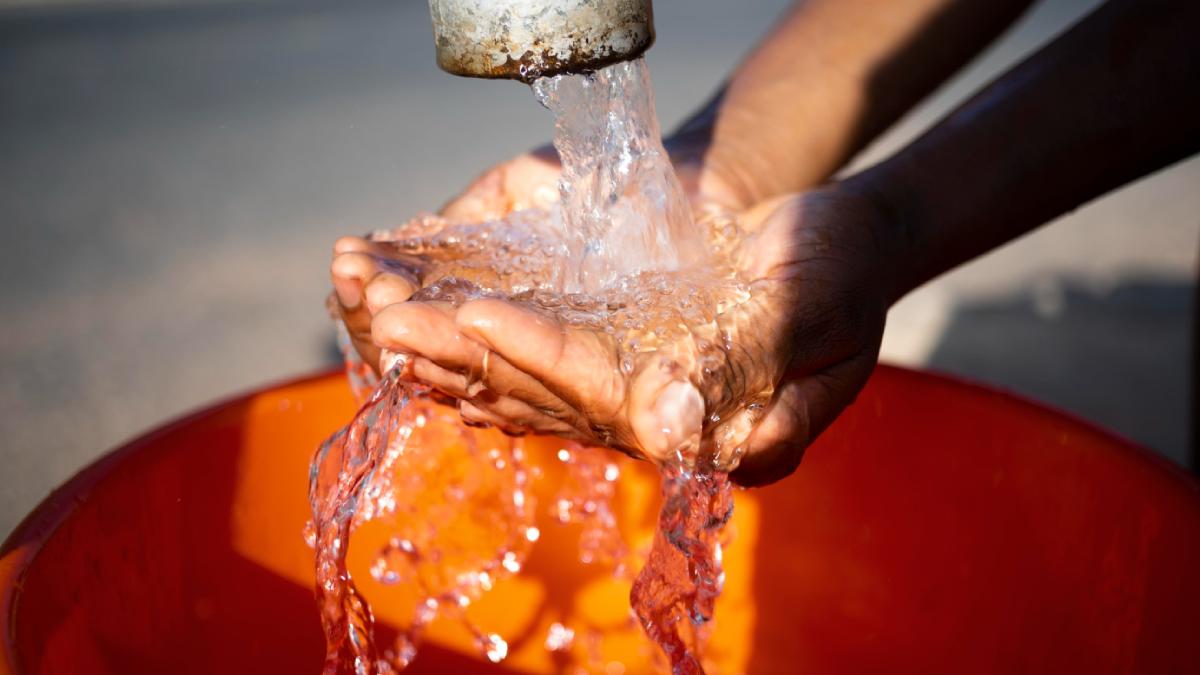
The government will undertake a major lay of 11.7 kilometres of water pipeline from Sawani to Colo-i-Suva and to Khalsa Road junction, a new pump station and the construction of two 5-megalitre reservoirs.
Deputy Prime Minister, Professor Biman Prasad says this project will ensure that the elevated areas such as Sakoca, Nagatugatu, Tacirua, Dokanaisuva and Coloisuva that faces continuous intermittent water supply will be able to receive 24/7 reliable water supply.
This project will also allow operational flexibility and be able to improve water supply along Princes Road.
They are also investing in the construction of a new 20-megalitre Water Treatment Plant to complement the existing Tamavua Water Treatment Plant with a total cost of $12 million.
This initiative will benefit 230,000 people living along the Suva to Lami corridor and parts of Nasinu.
It will enhance treatment capacity, allow for faster implementation timelines, and support future expansion to meet increasing water demand within these densely populated areas.
The Water Authority of Fiji has also begun works for the development of a new water treatment plant in Navua as well as a new water supply scheme in the Wainadoi area that will have a coverage area from Naboro to Nabukavesi, with the potential to extend towards Togalevu and Naimelimeli in Navua.
WAF is looking into extending water supply services from Veinuqa to Kasavu in Tailevu as well as from Naqali to Lomaivuna in Naitasiri.
In the Western Division, they are upgrading the water mains which will benefit around 80,000 people living within and along Dreketi Feeder Road, Vuda, Wairabetia, Nadi Airport, Nadi Back Road and Sabeto Road areas, focusing on improved and consistent water supply.
They are also investing in water extensions to previously unserved communities such as those in the Korovuto area in Nadi, and the Coral Coast region in the Votua area in Sigatoka.
Water source improvement works has been allocated as well to improve water supply services with the proposed works for Qalau and Nasivi intakes in Ra and Tavua respectively and rehabilitation works for Nadrou and Varaciva pump stations in Ba.
In the North, they are upgrading the Benau Water Treatment Plant, as well as water mains upgrade to Rara and Volanau in Labasa and this includes improvement works for Naidriva in Savusavu as well.
In addition, WAF has begun works for the proposed Wainivasa Water Source in Taveuni.
The government will soon start the legislative changes required for the corporatization of the Water Authority of Fiji.
WAF has been provided increased funding of $284 million to fix the infrastructure, including upgrading of water sources and treatment plants, reticulation and distribution and non-revenue water reduction.
Half of all the water that is collected, treated and then distributed through the WAF pipe network never reaches the tap. This has been a long-standing issue, neglected for decades.
In the upcoming financial year, the government is committed to a strategic path aimed at reducing non-revenue water significantly, from nearly 50 percent down to 20 percent over the next 5 years.
Then they will attack the last 20 percent.
27/06/2025
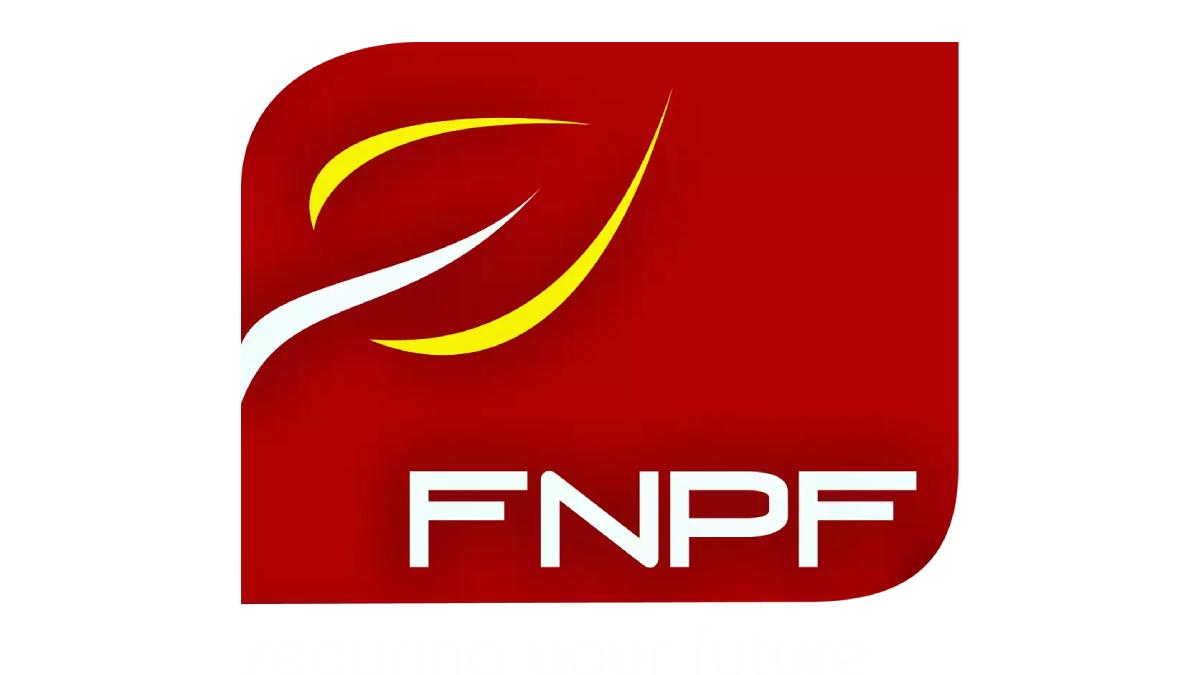
Great news for Fiji National Provident Fund members as FNPF has announced a landmark achievement with a remarkable interest rate of 8.75% for the financial year ending June 30th 2025.
This marks the highest credit interest rate in over 30 years, with a total of $698.75 million to be credited to members' accounts.
FNPF says this significant milestone highlights the Fund's strong investment performance and unwavering commitment to securing the future of its members.
Chief Executive Officer Viliame Vodonaivalu says for the financial year ending 2025, the Fund achieved a total investment income exceeding $1 billion, a testament to FNPF’s robust, diversified investment strategy and its ongoing focus on sustainable, long-term value creation.
He says their investment strategy is deeply anchored in delivering long-term benefits to the members while ensuring the Fund’s financial integrity,
The Fund's investment income was largely driven by equities, which accounted for 52% of total earnings.
Government bonds contributed 27%, while commercial debt investments provided 11%, and property and other portfolios made up 10%.
On the global front, the Fund invested in an S&P 500 Index tracking Exchange Traded Fund and enhanced its holdings in BSP Financial Group Limited.
It also diversified its portfolio of Australian-listed equities to include listed real income securities in developed global markets, all of which contributed positively to the Fund’s performance.
Significant local investments during the financial year included purchase of prime land in Pacific Harbour, investment in Naisoso Radisson Blu Mirage through the purchase of an ABA, syndicated loan facility, and securing mezzanine debt, a capital injection into Farleigh Limited, dividend reinvestment in HFC Bank shares and providing a loan facility to Fiji Airways.
Members are encouraged to check their updated balances starting Tuesday, July 1st via the MyFNPF App.
27/06/2025

Deputy Prime Minister and Minister for Finance, Professor Biman Prasad has announced an expansionary 2025/2026 National Budget with a total revenue of $3.9 billion and total expenditure of $4.8 billion. This is a net deficit of $886 million.
Based on this, government debt is projected at $11.7 billion - around 79.8% of GDP.
Professor Prasad says this is about 10% lower than what the coalition government inherited in 2023.
He says the expansionary fiscal stance is deliberate to protect our people.
27/06/2025

Great news to low-and middle-income earners as the Government through the Housing Authority and Public Rental Board, is looking at delivering around 2,900 residential lots and more than 1,800 houses in Nepani, Wanibuku, Davuilevu, Tavakubu, Tavua, Wairabetia, Tacirua, Waqadra, Waila and Veikoba.
Deputy Prime Minister and Minister for Finance Professor Biman Prasad says access to housing remains a challenge, especially in our major urban centres.
He says apart from the Housing Authority and PRB, they are also collaborating with other key partners like Habitat for Humanity, HART, Koroipita and other private sector partners to deliver affordable housing solutions.
Professor Prasad says a total of around $4 million is provided for these partnerships.
He says the tax incentive available for the development of subdivisions has been extended which provides developer profit exemptions and customs duty concessions for land developers undertaking investment in residential subdivisions.
The Deputy Prime Minister adds this has been quite effective in encouraging investors to add additional residential lots and increasing the overall stock of housing in Fiji.
He also highlighted that the low-interest rate environment remains conducive for housing finance with home loans provided at just below 4 percent from the commercial banks.
Professor Prasad says they will also allow FDB to re-introduce housing loans on a small scale. The Deputy Prime Minister says to support low and middle-income families with home deposits, they will continue with the first home buyers grant.
He says for those earning below $50,000, a government grant of $30,000 is available for first home construction while $15,000 is provided for first home purchase.
Professor Prasad says for those earning above $50,000 but less than $100,000, a first home construction grant of $20,000 is available and a $5,000 grant for first home purchase.
He adds this will continue with a budget of $3.5 million.
On informal settlements, Professor Prasad says the country faces major challenges in this area and the rise in squatter settlements is linked to our history.
The Minister says they remain committed to redeveloping and formalizing our squatter settlements with the issuance of proper lease titles and appropriate facilities and services.
He says around $15 million is provided for the formalization of 6 informal settlements in Tavela, Tore, Field 40, Valequyaya, Sakoca and Vunika.
Professor Prasad says they will also start four new areas including Lovu Seaside, Nabare, Delaisaweni and Caubati where this will formalize around 1500 housing leases.
In response to eviction notices given to families in areas like Nabua Muslim League, Veidogo in Vatuwaqa, and Nadiri, the Deputy Prime Minister says the Government is providing funding of $2.2 million for relocation and resettlement.
He says the funding will be used to commence critical preparatory work, including consultations with affected communities, land negotiations, and detailed implementation planning to ensure that affected families are provided with secure resettlement options.
Professor Prasad says the VAT refund scheme for the construction of homes will continue and under this scheme, any person constructing their first home is eligible for a refund of all VAT paid on construction material up to a value of $120,000.
He adds that they are also expanding this for the installation of solar power on residential homes and reconstruction of homes destroyed by termites for households with less than $50,000 income.
The Minister says this will complement the termite construction subsidy of $5,000 provided to families earning less than $30,000 and $2,000 to those earning between $30,000 to $50,000.
He says the Government has allocated $2.9 million towards this, on top of the $5 million that has already been spent when the initiative was introduced.
27/06/2025
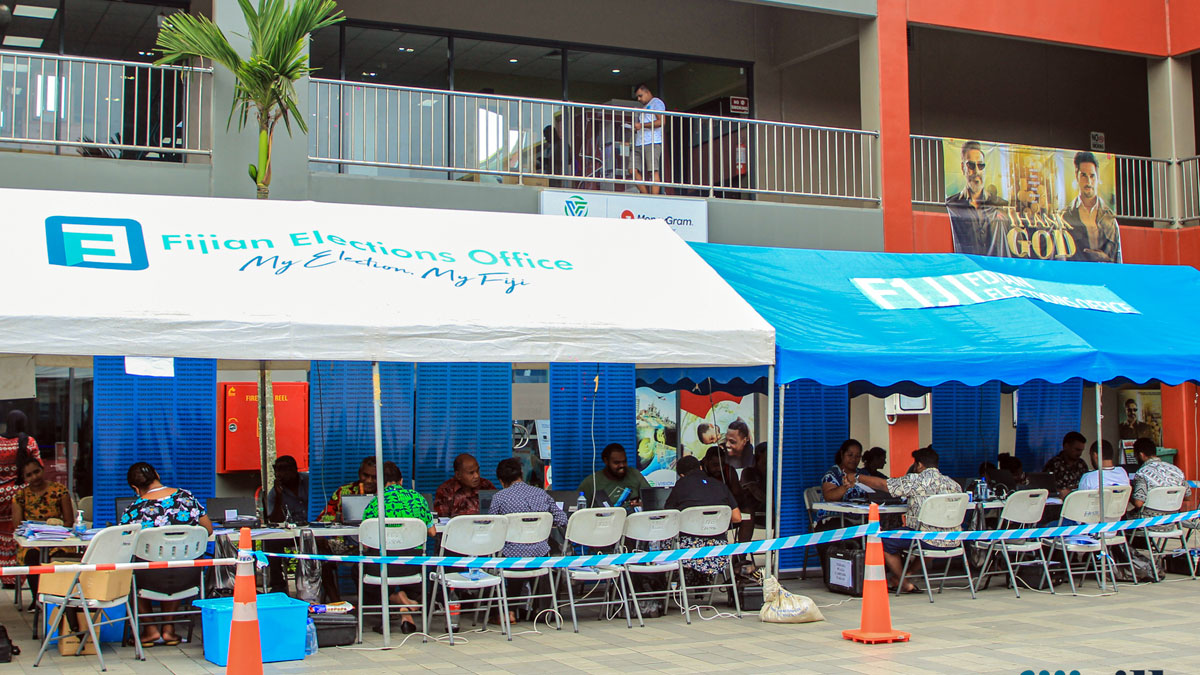
The Fijian Elections Office is allocated $20 million in the 2025/2026 National Budget.
Deputy Prime Minister and Minister of Finance Professor Biman Prasad says this provision allows for preparatory work for the next general elections, demonstrating their commitment to democratic processes and electoral readiness.
$400 million allocated for replacement of four critical bridges
27/06/2025
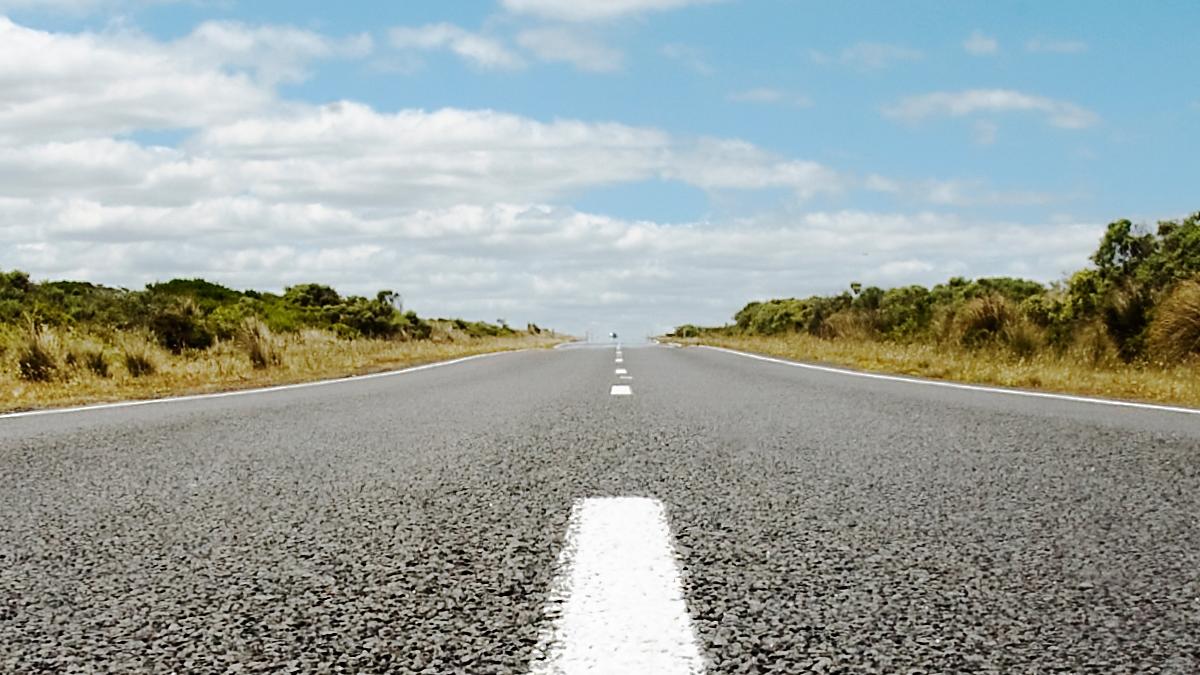
Four critical bridges valued at $400 million have to be replaced and this will be done by concessional loan and grant financing through the Asian Development Bank and the World Bank.
Dpeuty Prime Minister, Professor Biman Prasad says this includes the replacement of the Lami Bridge at Suvavou, Medraukutu Bridge near the Lami Cement Factory, Sabeto Bridge, and Viseisei Bridge linking Nadi and Lautoka.
The Fiji Roads Authority is provided a funding of $388 million, an increase of $37 million from the previous year.
This includes almost $120 million for road maintenance.
$74 million is allocated for road renewals, replacement and resealing, $23 million for footpaths and bus shelters and $30 million for new sealing and upgrading of community and rural roads, including around $5 million for the tar sealing of Kavanagasau road (Laselase to Naroro) and also for Biausevu Road in Sigatoka and Vuci, Naduru and Koronivia roads in Nausori.
$16 million is provided for the maintenance of our jetties in Koro, Moala, Lomaloma, Vunisea, Nabouwalu, Savusavu, Taveuni and Rabi.
The government is working with the Asian Development Bank on 3 major investment projects to revamp the jetties in Nabouwalu, Natovi and Savusavu.
There are also major plans being worked out to ease traffic in the major urban centres, including from Lami to Suva and Suva to Nausori, Nadi to Lautoka and in Labasa town area.
FRA is working on options for road widening, provision of footpath and bicycle lanes, improved lighting and introducing smart traffic signal systems.
They are also providing $500,000 for feasibility study on a flyover road from Suva to Nausori.
The government is also commencing the Labasa Bypass Project.
This long-awaited infrastructure development will ease mobility in the Northern Division.
By diverting traffic around the town, particularly during peak periods such as the cane crushing season, they will reduce congestion, improve safety, and enhance the efficiency of commercial and personal transport.
They are investing in approximately 82 kilometres of upgraded rural roads, with a focus on strategic corridors such as the Nabouwalu, Wailevu West Coast, and Natewa West Roads funded by government of China.
The government is also working with the Asian Infrastructure Investment Bank to undertake a major investment to fix our rural road infrastructure.











